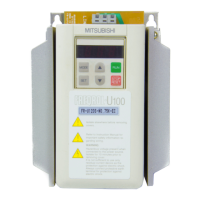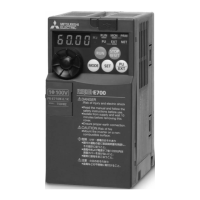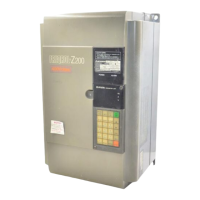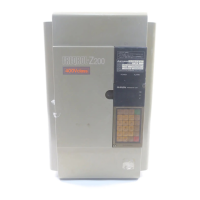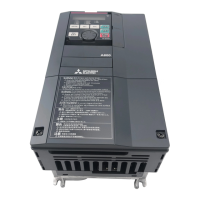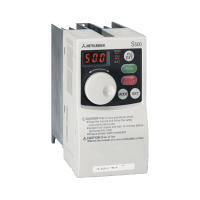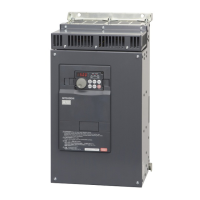23.
INSPECTION AND MAINTENANCE
The general-purpose inverter is
static
equipment mainly consisting of semiconductor devices. To
prevent problems occurring due
to
environmental conditions such as high temperature, humidity,
dust, and vibration, or aging of the component parts, inspection at regular intervals is necessary.
23.1
Precautions on Inspection and Maintenance
After the power is turned
olf,
the smoothing capacitor remains charged at high voltage for a while.
Remove the front cover and wait until the POWER indicating lamp (refer
to
page
3)
on the printed
circuit board
goes
off.
Start inspection or maintenance several minutes affter
the
turning
off
of
the
POWER indicating lamp.
23.2
Inspection
items
(1)
Daily inspection
Check the iollowing items during opera-
tion.
a) The motor operates property.
b) The environment is normal.
c) The cooling system is nonnal.
d) There is no unusual vibration
or
e) There is no overheating or discolora-
During operation, check the inverter
inpuVoutput voltage with a multimeter.
noise.
tion.
(2)
Regular inspection
Check the following items which may
be
checked only after stopping the inverter
at regular intervals.
a) Check that the cooling system is cor-
rect. Clean the air filter, etc.
b) Tighten the mews and bolts. Since
screws and bolts will loosen due
to
vibration and thermal expansion,
check the screws and
bolts
and
tighten them
if
bose.
c) Check
the
conductors and insulators
for corrosion and damage.
d) Measure insulation resistance.
e)
Check the cooling fan, smoothing
capacitor, and relay. Replace a
defective part.
(3)
Testing insulation resisting using a Megger
a)
To
test the insulation resistance of the external circuit, disconnect ail wires from
the
in-
b) For the continuity
test
of
the
cootrol circuit.
use
a multimeter (high resistance range).
c) Conduct the insulation resistance test on the inverter main circuit only. Do not conduct the
verter terminals
so
that test voltage will
not
be
applied
to
the inverter circuits.
not use a Megger or buzzer for
!he
test.
test on the control circuits.
(Use
a
500
VDC
megger.)
-
95
-
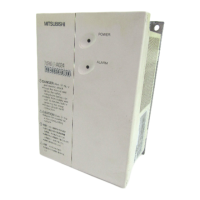
